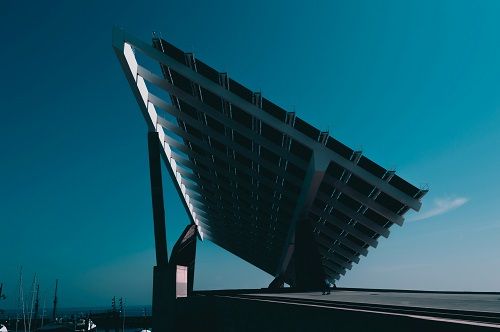The market for solar technology is once again abundant. Gone are the days of supply bottlenecks and material shortages. Instead, supply is pushing down prices, which is also making the construction of solar power plants more cost-effective. "The bottleneck in the expansion of photovoltaics is now the grid connection", explains Markus W. Voigt, CEO of the aream Group.
The market for solar modules is setting a breathtaking pace. Global production capacity is expected to nearly double this year, reaching one terawatt in 2024. The expansion is concentrated in China, but the U.S. should also see a tripling of capacity in 2023, forecasts consulting firm Clean Energy Associates. "The supply chain issues for modules, inverters and steel no longer exist", Voigt says. "Prices and delivery times are now back to pre-crisis levels."
Meanwhile, the drop in prices is a major concern for European suppliers. Particularly because of Chinese dumping offers, solar modules have become cheaper by more than a quarter since the beginning of the year, complains the industry association SolarPower Europe, which has asked the EU Commission and the EU Parliament for support in the alleged price war against Chinese producers. What burdens European companies and threatens the existence of some of them, is at the same time favorable for the widespread expansion of renewable energies in Europe. "The prices for the construction of solar power plants will probably continue to fall as a trend", says Voigt.
However, some factors are currently still holding back this expansion. Unlike in other industries, the problem is not so much a shortage of skilled workers. "Despite rising installation numbers, the availability of labor to build the plants is not yet the bottleneck in Europe", explains Voigt. "The bottleneck is more in grid connection components such as transformers and substations." At the same time, he says, a further reduction in bureaucracy is needed. Although political support for simplifying approval procedures continues to exist in principle, Voigt says. "What is still missing, however, is implementation that would lead to noticeably shorter development times."
PRESSEKONTAKT:
Leandra Kiebach
T: +49 (0)211 30 20 60 4-2
E: lk@aream.de
